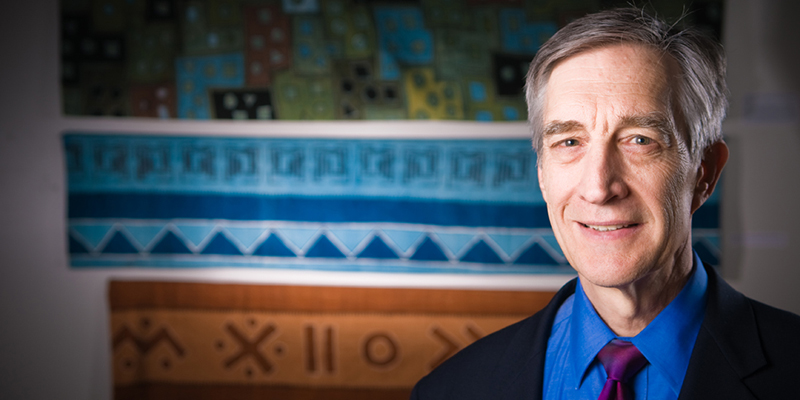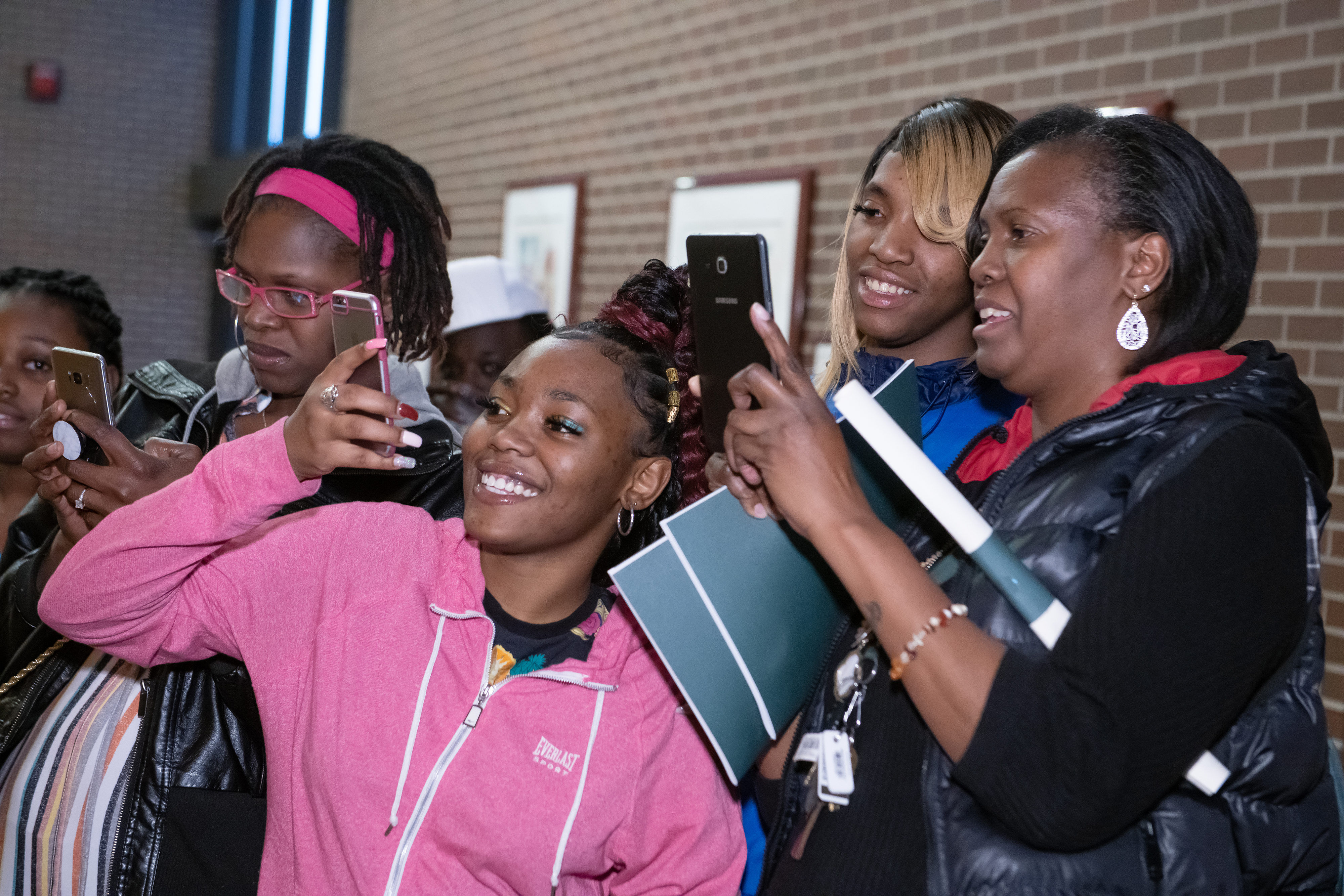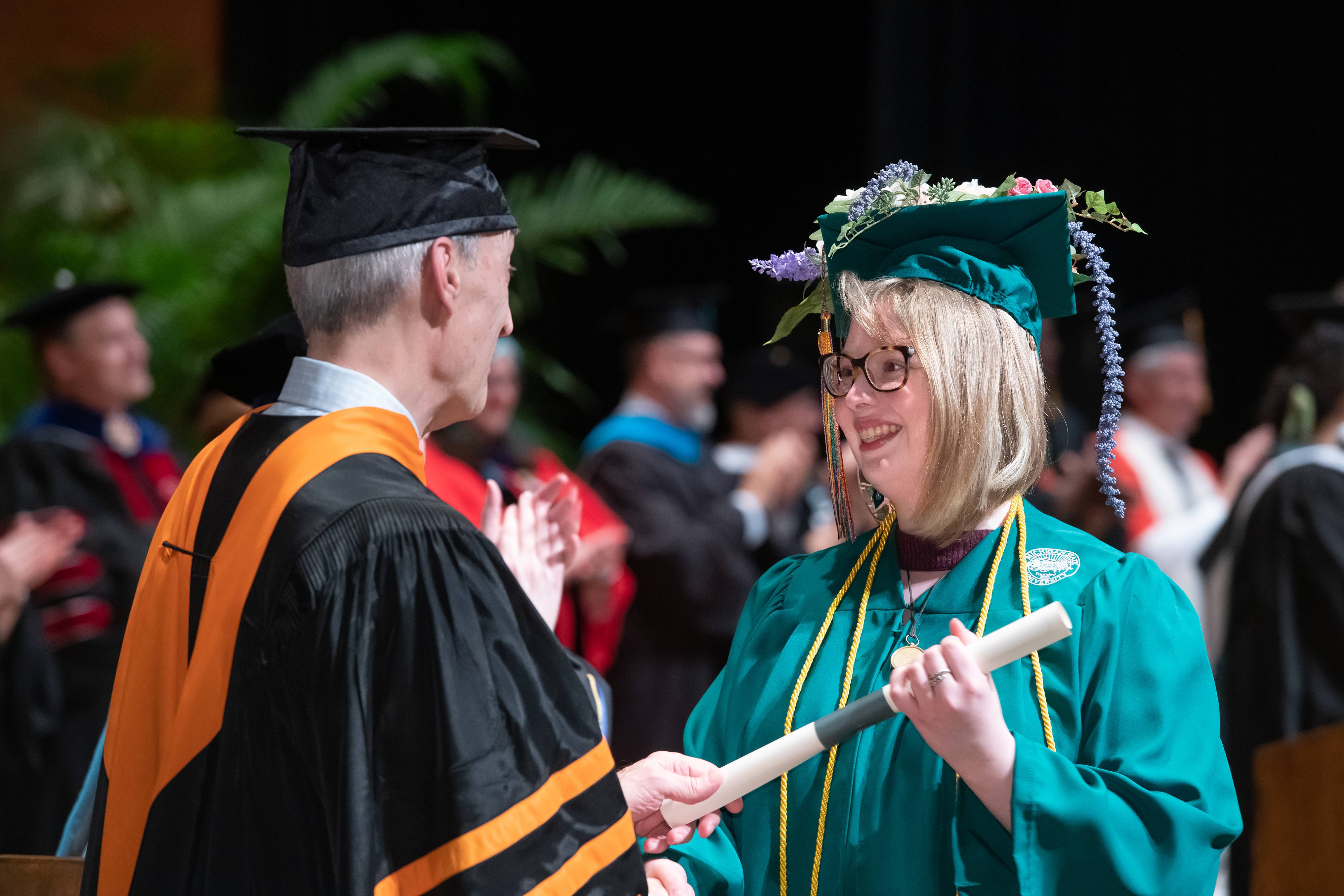Message from the Dean: The Feeling of Commencement
May 19, 2019
By Stephen Esquith, Dean of the Residential College in the Arts and Humanities
 In this space I usually try to introduce an abstract idea and then apply it to a current situation or challenge relevant to the College.
In this space I usually try to introduce an abstract idea and then apply it to a current situation or challenge relevant to the College.
Last time the idea was mutual independence, and I used it to explain the kinds of projects that RCAH students, faculty, staff, and community partners develop together. Other ideas have included radical poise in the face of the national political challenges which confront us and the idea of belonging as a goal of diversity and inclusion in public higher education.
This time I’d like to do something a little different. I’ll start with an important event and then move from there to a familiar idea we associate with it to show that both event and idea actually may be more complicated than we commonly think they are. The event is commencement, and the idea is the pleasurable feeling that we associate with it.
Let me begin with a comment I heard after the RCAH commencement ceremony May 4.
A grandparent remarked that she thoroughly enjoyed the event. This is not unusual for an RCAH commencement. My experience has been that family members take great pride in their graduating seniors and appreciate the support that their students have received from the RCAH faculty and staff over the years. They enjoy the relaxed atmosphere, the music, and the visible bonds of friendship among the students and faculty. The words spoken were less important than how they were spoken.

What this grandparent said went a bit further. It wasn’t just about the pleasure that she felt watching the ceremony. She said that she could tell how much pride the faculty and staff took in seeing their students walk across the stage to receive their degrees. In fact, she said, it wasn’t primarily pride in their work as faculty and staff, although that may have been part of it. It was the pleasure the faculty and staff seemed to take in seeing how far these new graduates had come in their time at RCAH.
I have heard faculty and staff say something similar themselves after commencement as they recall their first encounter with a student and then what it is like to have them in class again as a graduating senior. The change never ceases to amaze us, and it is this intellectual and moral development that is such a pleasure to be reminded of at commencement. It is, I would argue, something we feel at our commencements because RCAH is a four-year residential college. We get to know our students and how they’ve changed.
I’d like to reflect a moment on this feeling among faculty and staff that this grandparent observed and that faculty and staff often report feeling themselves. It can’t be reduced to a reflection on a cumulative grade point average, admission to a graduate program, or a good first job.
Our grandparent saw it in the eyes and the body language of everyone who sat, stood, or walked on stage. She saw it, I think, in the way the students responded when their names were read, when RCAHppella lifted their voices, and when the student and alumna speakers spoke with gratitude and modesty at the podium. It was a moment of shared contentment, where we stood together to take pleasure in a common cause.
Cognitive scientists have located different emotions (e.g., fear, seeking, empathy, grief) in different parts of the human brain. Primatologists have drawn comparisons between the behaviorial expressions among human and non-human primates. Evolutionary biologists and psychologists have theorized about their adaptational functions and how they have developed over millions of years in mammals, not just humans. Computational biologists have analyzed their circuitry, and computer engineers have even begun to try to simulate them alongside the brain functions that have given birth to artificial intelligence.
One thing all of these observers of human intelligence can agree on is that emotions are an unavoidable part of who we are and how we perceive our world and act in it. Emotional intelligence is simply one part of a larger social intelligence. The emotions are not irrational; every rational choice we make is at the same time an affective or emotional expression. Another thing these observers have in common is that there quantitative approaches, separately and together, leave an important part of the emotions and their relation to reason unexplained.

The smiles, laughs, handshakes, hugs, and applause at commencement are not just the products of cost-benefit decisions. There is a qualitative remainder that cannot be indexed quantitatively. In Life: A Critical User’s Manual (Polity, 2018) the anthropologist and physician Didier Fassin describes this in terms of the distinction between biology and biography. We live our lives according to the human life cycle and the rhythms a story we partially author and sometimes revise. It is in this matrix of reason and emotion and the overlapping worlds of biology and biography that we feel pleasure and pain, grief and joy, anger and care.
What do we mean when we say we feel pleasure at an RCAH commencement? What are the reasons and feelings at play? How important is this feeling to our lives? I doubt if it is the same for everyone. For some it may be relief—or even surprise. For others, like the grandmother mentioned above, it may stem from recognizing the care that has been given and received.
From where I sat at commencement, it was a feeling that began as I called off the names of the faculty and staff. The feeling came home to me when I said in closing that these are students ready for the long haul. These words were music to my ears, and they lifted me in the same way a dance or a jazz ensemble can evoke a transcendent emotion and lift the spirit. Asma and Gabriel write,
Part of the thrill of dance and music in fast-paced interactions between individuals and groups is that they so obviously engage the emotion of play…Sometimes these feelings are created by the communal nature of the gathering; at other times, some deep nostalgia generated by sound and song brings about warm sentiments. (Stephen T. Asma and Rami Gabriel, The Emotional Mind: The Affective Roots of Culture and Cognition, Harvard University Press, 2019, p. 283)
For indeed, we do face a long haul if we are going to transcend the current political madness and deliver on the promise we have made to ourselves to put the arts and humanities to work for the common good.
The pleasure felt by many of us in the Wharton Center on the evening of commencement was a sense of confidence that this promise would be redeemed—and that we share a responsibility for it.
This is why we call it commencement, because this is how it feels.
The Residential College in the Arts and Humanities at Michigan State University is where students live their passions while changing the world. In RCAH, students prepare for meaningful careers by examining critical issues through the lens of culture, the visual and performing arts, community engagement, literature, philosophy, history, writing, and social justice. RCAH is situated in historic Snyder-Phillips Hall, where students learn and live together in a small-college setting, with all the advantages of a major university. For more information, visit rcah.msu.edu, email rcah@msu.edu, or call 517-355-0210.
Facebook https://www.facebook.com/RCAHMSU/
Instagram https://www.instagram.com/rcahatmsu/
Twitter https://twitter.com/RCAH_MSU
YouTube https://www.youtube.com/channel/UCpfDHNy0ws5nxgaL9v1xMGw

